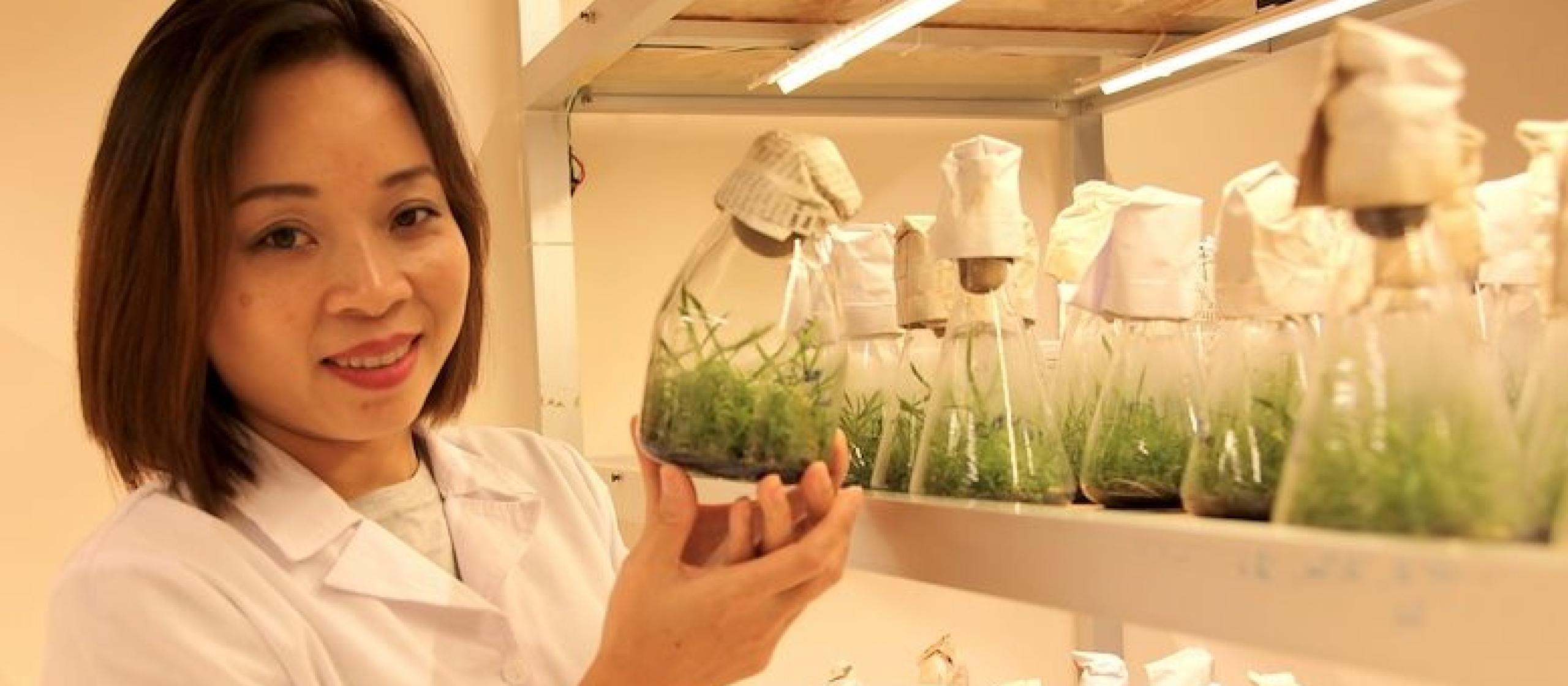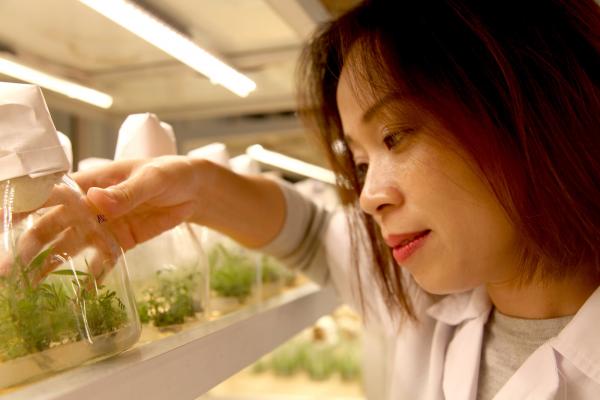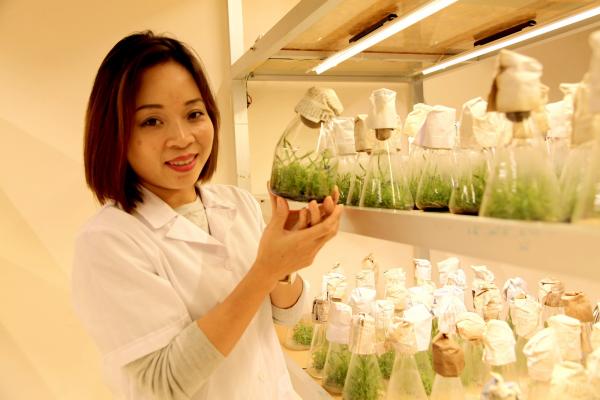- HomeHome
-
About ACIAR
- Our work
- Our people
-
Corporate information
- ACIAR Audit Committee
- Commission for International Agricultural Research
- Policy Advisory Council
- Agency reviews
- Executive remuneration disclosure
- Freedom of information (FOI)
- Gifts and benefits register
- Information publication scheme
- List of new agency files
- Contracts
- Legal services expenditure
- Privacy impact assessment register
- Commonwealth Child Safe Framework
- Benefits to Australia
- Careers
- 40 years of ACIAR
-
What we do
- Programs
- Cross-cutting areas
- Resources
- Where we work
-
Funding
- Research projects
- Fellowships
-
Scholarships
- John Allwright FellowshipScholarships to study in Australia for ACIAR partner country scientists to have Australian postgraduate qualifications
- ACIAR Pacific Agriculture Scholarships and Support and Climate Resilience Program
- Alumni Research Support Facility
- Publications
- News and Outreach
Date released
11 February 2019
Dr Nghiem Quyen Chi says, “I love my job,” with genuine passion. Dr Chi is a forestry scientist carrying out cutting-edge research on polyploidy ( cells and organisms are those containing more than two paired sets of chromosomes) in tropical acacias as a way to further improve wood yield and fibre quality as well as enhance the prospects for achieving genetic resistance to serious diseases.
She has been part of the ACIAR forestry team in Vietnam since the early 2000s, when she was a junior researcher at the Forest Science Institute of Vietnam. In 2007 she was awarded a John Allwright Fellowship by ACIAR, which enabled her to carry out her PhD work at the University of Tasmania. Dr Chi now leads the tissue culture program at the Institute of Forest Tree Improvement and Biotechnology at the Vietnamese Academy of Forest Sciences (VAFS), and remains actively involved with ACIAR’s forestry program in Vietnam.
“I have been very lucky,” adds Dr Chi. “I have had some great opportunities and I have made the most of them.” Growing up in Hanoi with three sisters, Dr Chi credits her parents for providing a supportive and enabling environment for their daughters, which gave her the confidence to follow her heart and enter the male-dominated field of agriculture. Early on she began to specialise in the genetics and breeding of tropical acacias and has built her career around the development of polyploid hybrids.
ACACIAS IN VIETNAM —A VITAL PLANTATION TREE
Acacias were introduced to Vietnam from Australia in the 1990s. They are now one of the most important plantation trees across the country, with currently around 1.2 million hectares planted. A large proportion of these plantations is managed by smallholder farmers, who earn a living by selling to the growing wood-processing industry.
More than 250,000 smallholder farmers have improved their livelihoods by growing the trees in 5-to-7-year rotations. Over 20 years, ACIAR projects have supported research on the domestication and improvement of tropical acacias, which has enhanced local capacity and supported dedicated scientists such as Dr Chi.
“I spend a lot of time in my job,” she says. “I think if you are a woman you have to try harder than a man. But I really enjoy my work, so it is not a problem for me.”
Research has resulted in a 15–25% improvement in wood yields and improved stem form, but there is still much to be done to safeguard this important industry in Vietnam. Polyploid plants have more than two sets of chromosomes, which can confer advantages over haploid or diploid plants in sustaining acacia productivity. Polyploidisation is also used to expand the gene pool of plants.
As Dr Chi explains, with acacias we currently rely on a very narrow genetic base derived from only 12 clones and this needs to be broadened to improve productivity and guard against pests and diseases. In 2004, Dr Chi started working with Professor Rod Griffin from the University of Tasmania and other Vietnamese researchers on an ACIAR project (FST/2003/002) undertaking research on polyploidy in Acacia mangium.
That project aimed to develop and assess polyploid breeding methods for commercially important acacia species, including for the production of sterile, high-yielding triploid plants from elite germplasm. Dr Chi went on to complete her PhD at the University of Tasmania on aspects of acacia polyploidy.
A VERY POSITIVE EXPERIENCE
Dr Chi’s experience in Australia, and working with ACIAR and project partners, has been very positive. “As a young woman working with Australian scientists, I have been treated with respect and consideration,” she says.
When Dr Chi returned to work in Vietnam, she was appointed as the leader of the tissue culture program, becoming one of the more senior female researchers in VAFS. She continued her work on triploid acacia clones under ACIAR’s project FST/2008/007.
The production of triploid acacia seedlings proved to be a difficult and slow process. At the end of more than 10 years of ACIAR-supported research, the team had successfully produced only 14 acacia triploid clones.
Dr Chi used her new skills to develop the technique for reproducing hybrid triploid seedlings by tissue culture, which enhances the ability to develop more clones for field testing. After using techniques to induce polyploidy, determining whether or not plants are polyploids is difficult.
Researchers from the University of Tasmania working on the ACIAR project developed a technique using a flow cytometer, which substantially improved the reliability of the testing for polyploidy. In 2015, ACIAR provided funding to purchase a flow cytometer for Dr Chi’s laboratory in Hanoi. This has enabled Dr Chi and her team to reduce the costs of these tests and to speed up the screening of potential polyploid plants.
The team can now conduct thousands of tests each year, including testing seed from progeny trials to better understand what the natural frequency of triploids is within a population. Since the completion of the ACIAR polyploidy project, Dr Chi has been successful in obtaining a US$300,000 grant from the Government of Vietnam to continue her research, representing a major government commitment to adopt ACIAR research outcomes.
Dr Chi leads a team of 10 staff on this project, which aims to scale up the production and testing of triploid acacias and establish 15 ha of pilot plantation trials within five years. It is hoped that these trials will provide sufficient highquality triploid acacias to enable a larger scale deployment to farmers to commence.
Dr Chi also has a role in a new ACIAR project FST/2014/068 ‘Management strategies for acacia plantation diseases in Indonesia and Vietnam’. In this project she will explore the opportunities to use polyploidy breeding techniques to broaden the genetic base within Acacia mangium for resistance to the damaging crown wilt disease (caused by the fungus Ceratocystis), which is killing large areas of acacia plantations in Vietnam and Indonesia.





